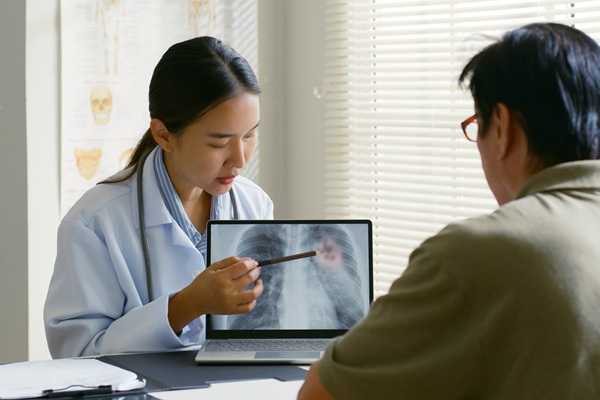Can Cancer Be Prevented?

Chances are good that you have heard conflicting information about preventing cancer. Some studies show that some types of activities can prevent cancer. Other studies may advise against that activity. Unfortunately, current knowledge about preventing cancer is still evolving. However, making good lifestyle choices can help reduce your chances of getting cancer.
Avoiding smoking
Tobacco products can put patients at risk of cancer. Mouth, lung, throat and pancreas cancers have all been linked to smoking. However, smoking also increases a patient’s risk of kidney, cervix and bladder cancer. Being exposed to secondhand smoke is another risk factor of getting cancer. A health care provider can help patients learn how to stop smoking.
Eating the right foods
Choosing healthy foods at the store can help reduce a patient’s risk of cancer. A plant-based diet can help a patient maintain their health. This can include vegetables, whole grains, fruits and beans. Eating a good diet will also help patients avoid obesity, which is another risk factor of cancer.
One diet that individuals can follow is the Mediterranean diet. This is a highly plant-based diet and includes many nuts and legumes. It also uses a lot of olive oil, which is considered a healthy fat. People who follow the Mediterranean diet also eat fish as the main source of meat.
Even though alcohol comes from a plant, individuals should not drink too much. Some studies have linked alcoholism with colon, breast, kidney and lung cancer. Regular drinking only increases this risk. Instead, individuals can drink water.
Getting physical activity
By being physically active, individuals can help maintain their healthy weight. This can reduce the chances of getting colon, kidney, breast or prostate cancer. Physical activity is not just for overweight individuals, however. Another benefit of physical activity is that it can reduce the risk of colon cancer.
Any amount of physical activity is beneficial for adults. However, for the maximum results, adults should get at least 150 minutes of moderate exercise each week. This can include anything that gets an individual’s heart rate up, such as running or swimming. Doing about half an hour of activity a day will benefit many individuals.
Avoiding the sun
Skin cancer is the fifth most common type of cancer, according to the World Health Organization. The good news is that individuals can reduce their chances of getting it. Staying out of the sun during peak hours and peak times of the year is vital. The sun is usually the strongest around the first day of summer. It is a good idea to stay out of the sun between about 10 a.m. and 4 p.m. Individuals should also cover up all exposed areas of skin.
Visit the doctor regularly
Cancer cannot be prevented, as researchers are still determining what causes it. However, maintaining a healthy lifestyle can help reduce your chances of getting it. Getting regular cancer screenings can help doctors discover it early. This can make it more likely that treatment will be successful.
Get more information about Lindenberg Cancer & Hematology Center in Marltonat https://lindenbergcancer.com.
Check out what others are saying about our services on Yelp: Read our Yelp reviews.
Recent Posts
Blood clot disorders include a spectrum of inherited or acquired conditions that disrupt healthy circulation, elevate the risk of blockage, and threaten vital organs. An oncologist frequently monitors patients for clotting complications because cancer, certain chemotherapies, and reduced mobility intensify thrombotic tendencies. Early recognition of warning signs, together with prompt intervention, significantly lowers the possibility…
Lung cancer treatment has advanced significantly in recent years, allowing for more personalized approaches that improve outcomes and reduce unnecessary side effects. Personalized lung cancer treatment plans are developed based on several factors, including the type and stage of cancer, genetic markers, overall health, and the patient's unique response to specific therapies. These tailored strategies…
An ovarian cancer diagnosis can be scary, as this form of cancer often develops without noticeable symptoms in the early stages. As the disease progresses, it can become more difficult to treat, making early awareness important. Knowing the signs, understanding the diagnostic process, and learning about treatment options from an oncologist can offer patients hope…
Gynecological cancer treatments target cancers that affect the female reproductive organs, such as ovarian, uterine, cervical, vaginal, and vulvar cancers. Fortunately, there have been significant medical advances in cancer treatment that have greatly improved patient outcomes, allowing oncologists to adjust therapies to fit each patient's needs and overall health. These targeted treatments work better than…


